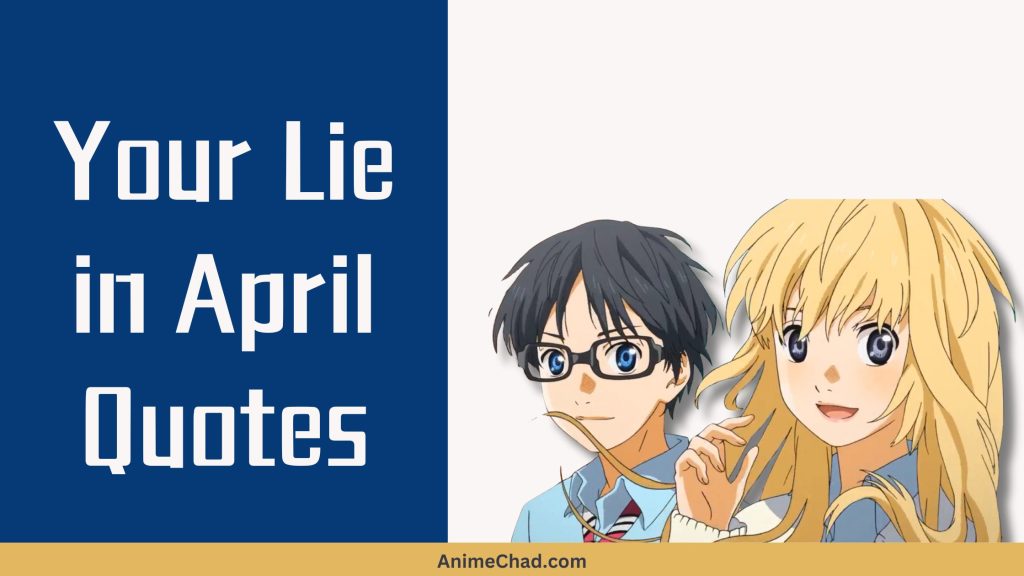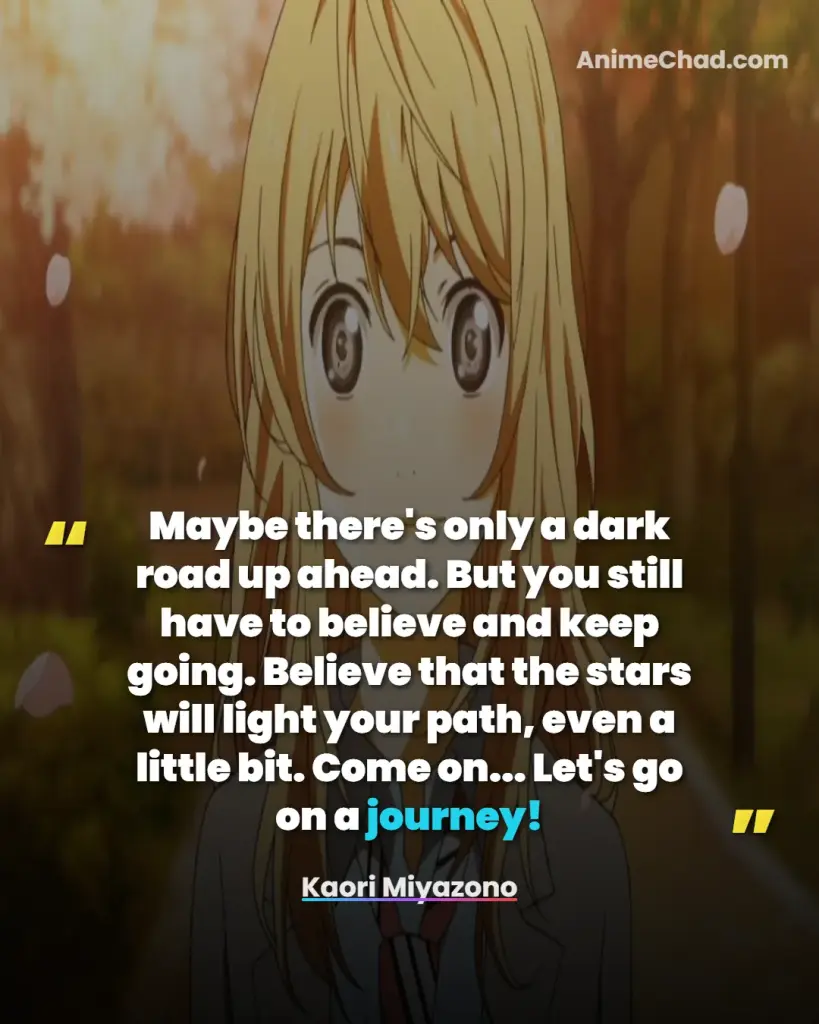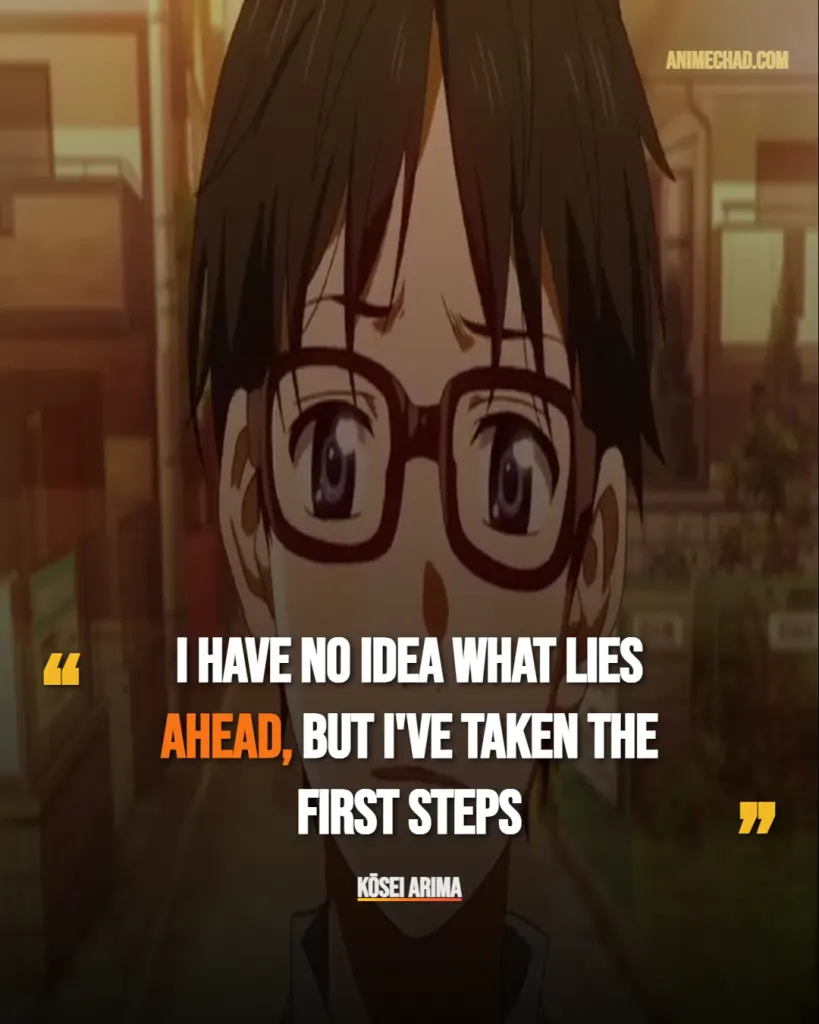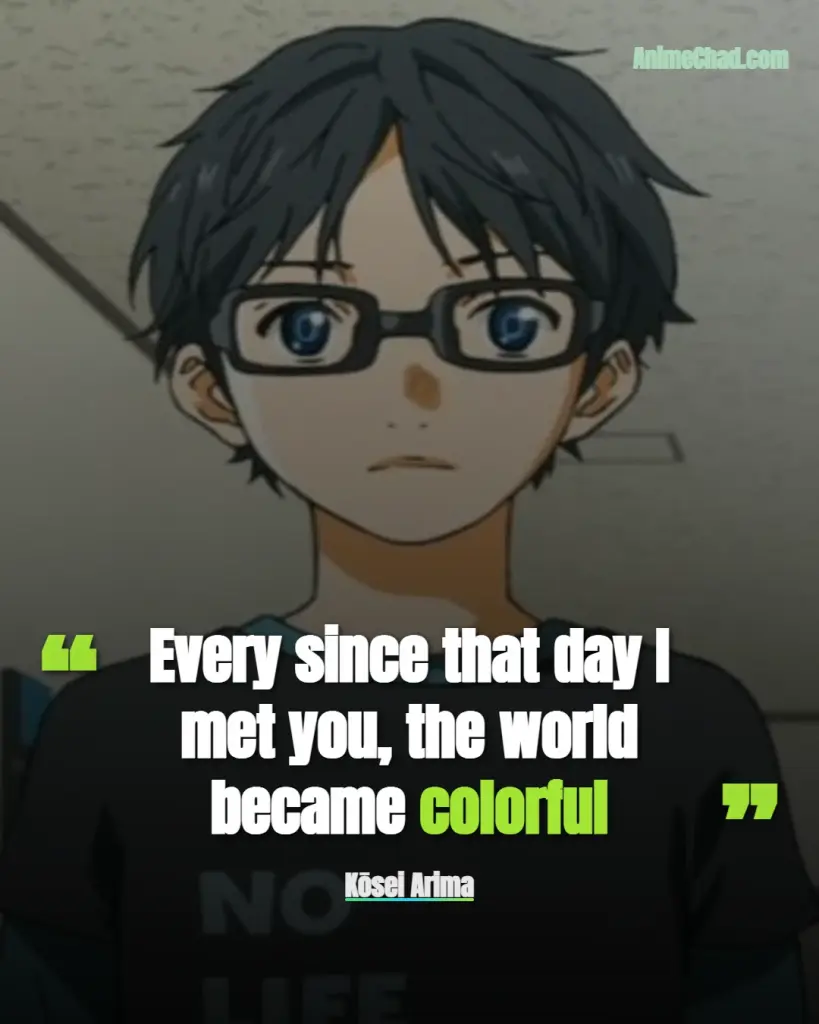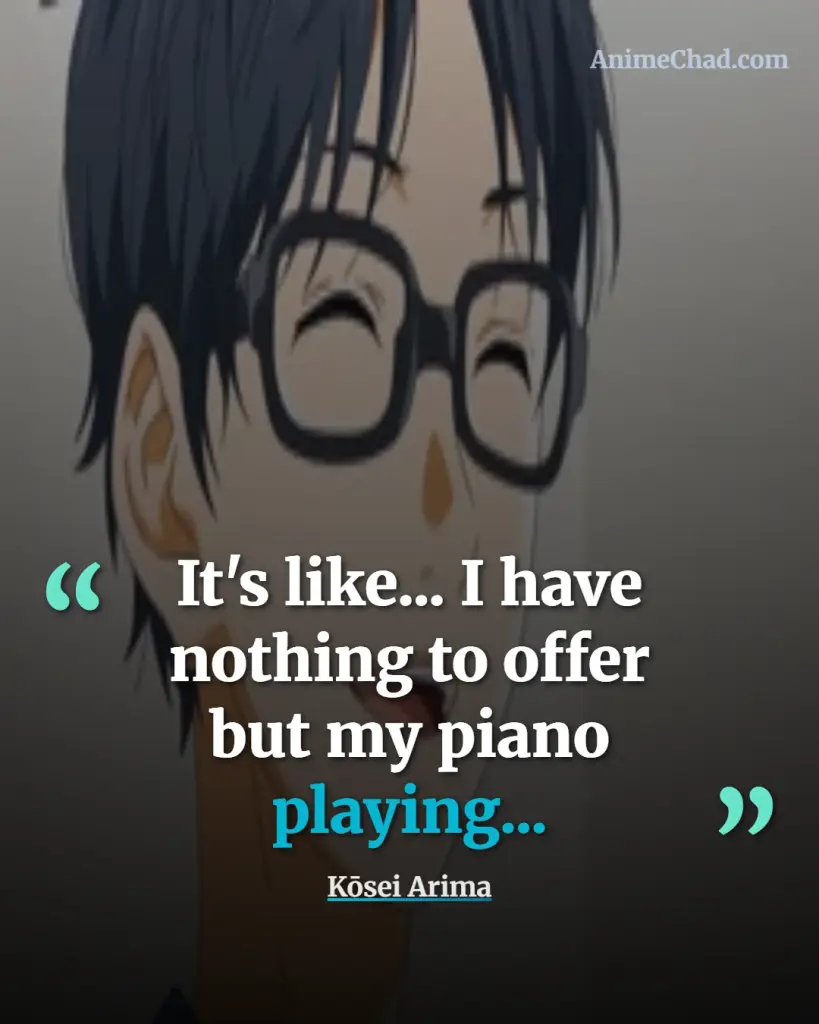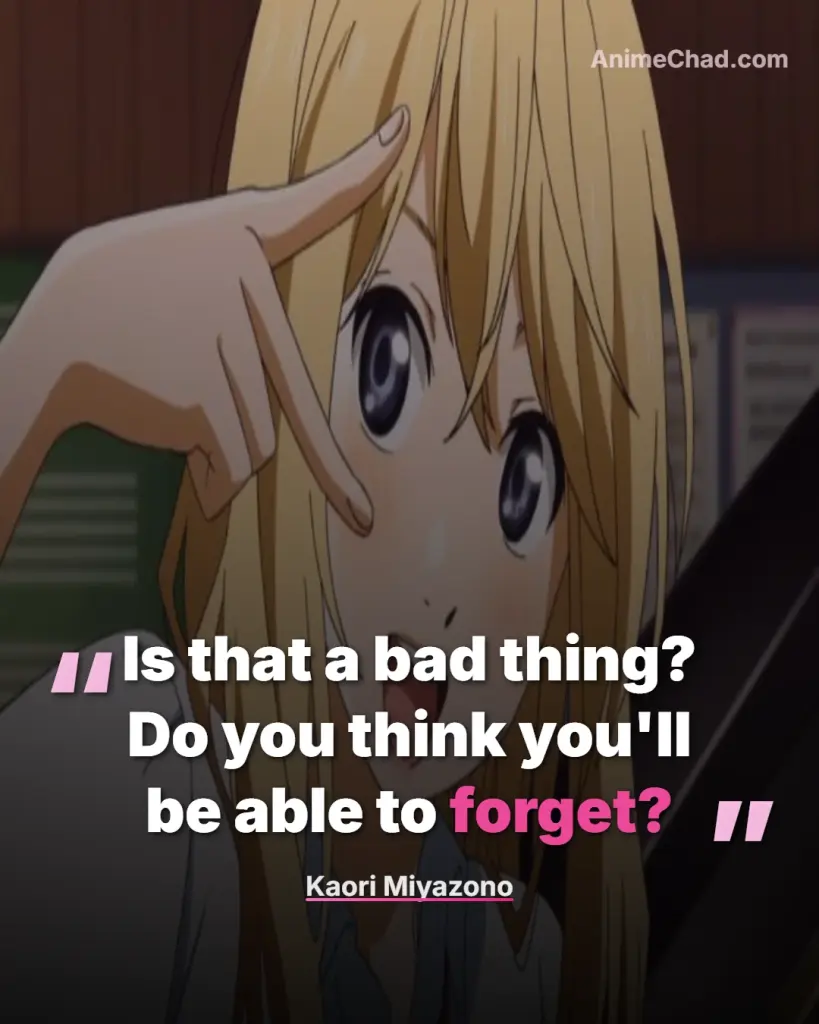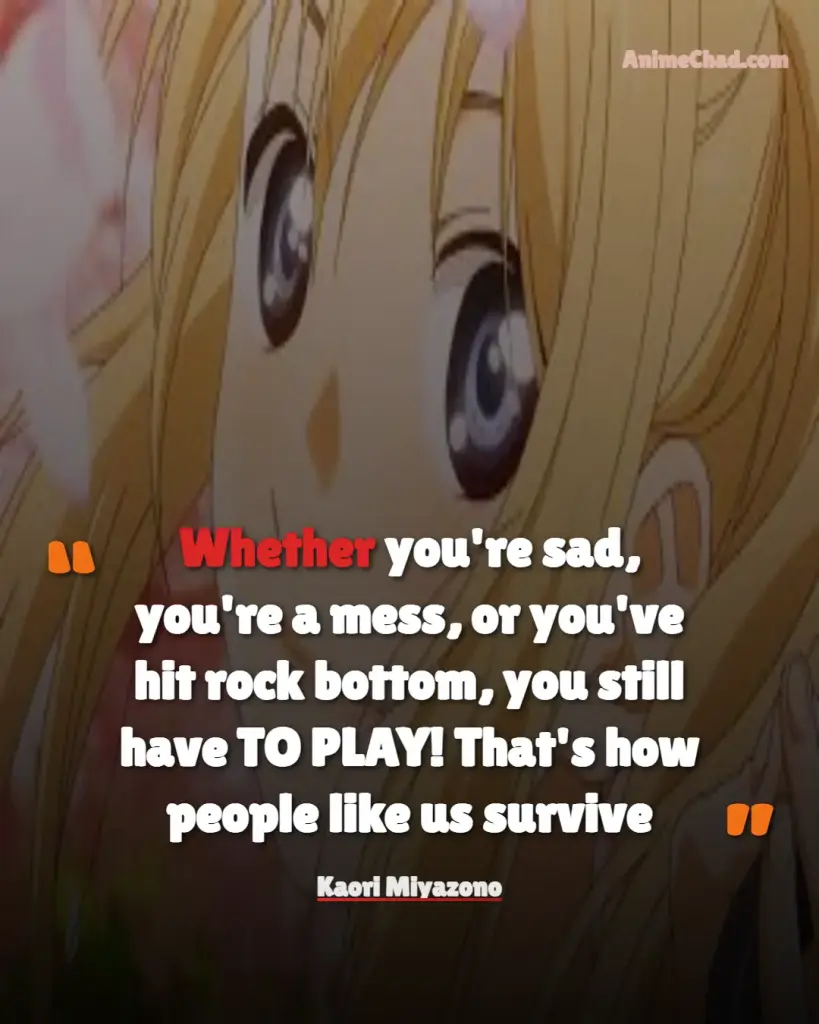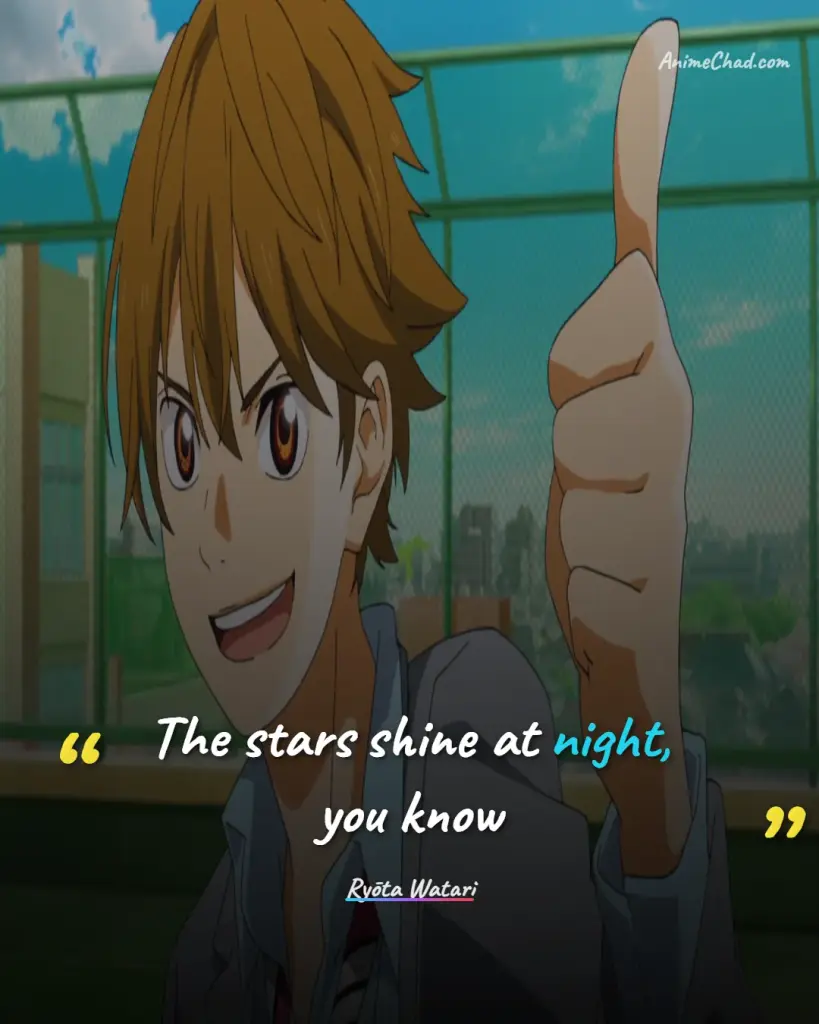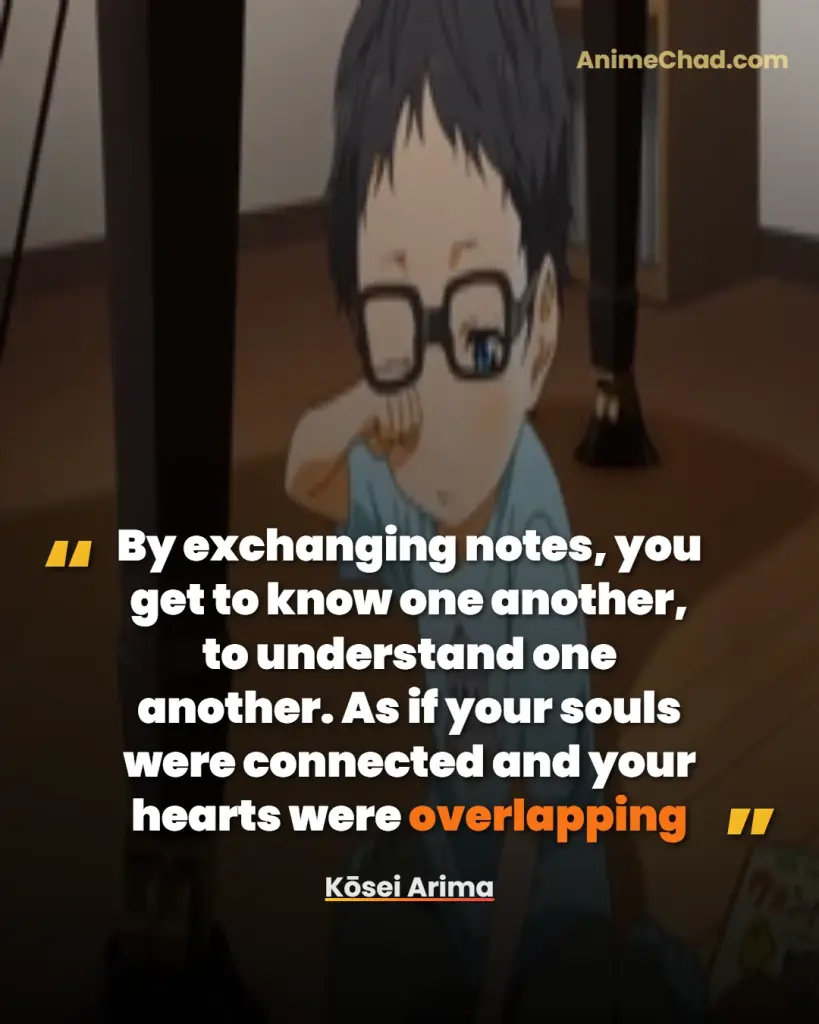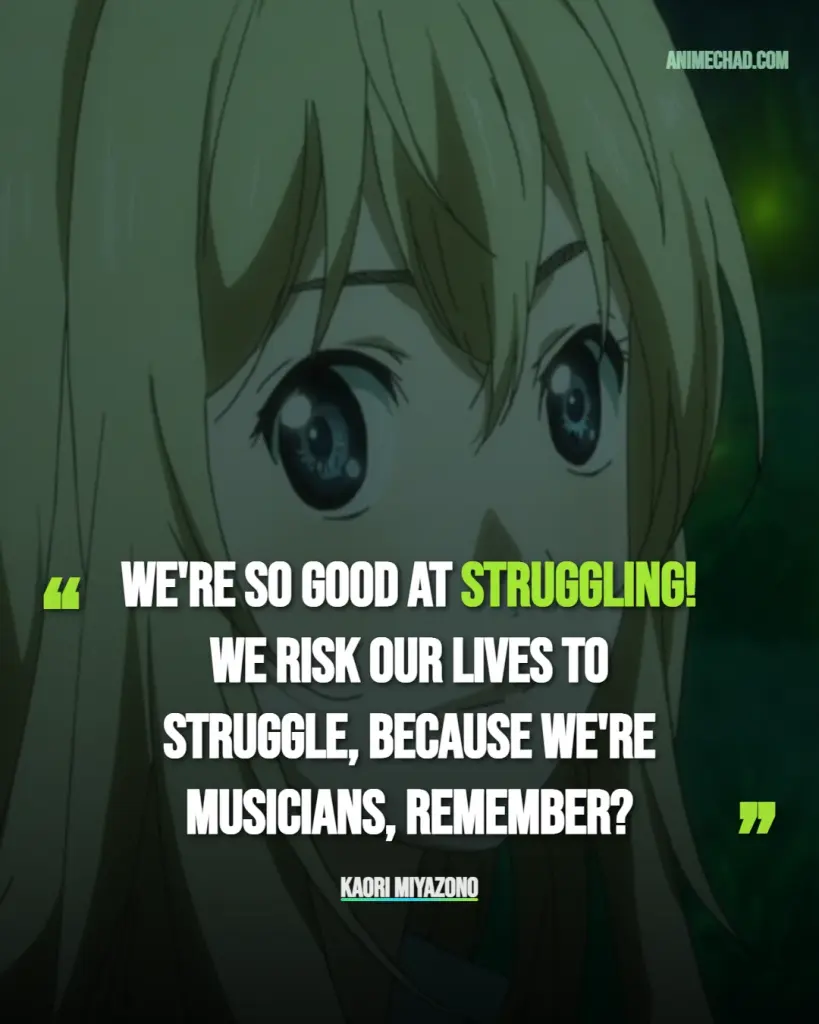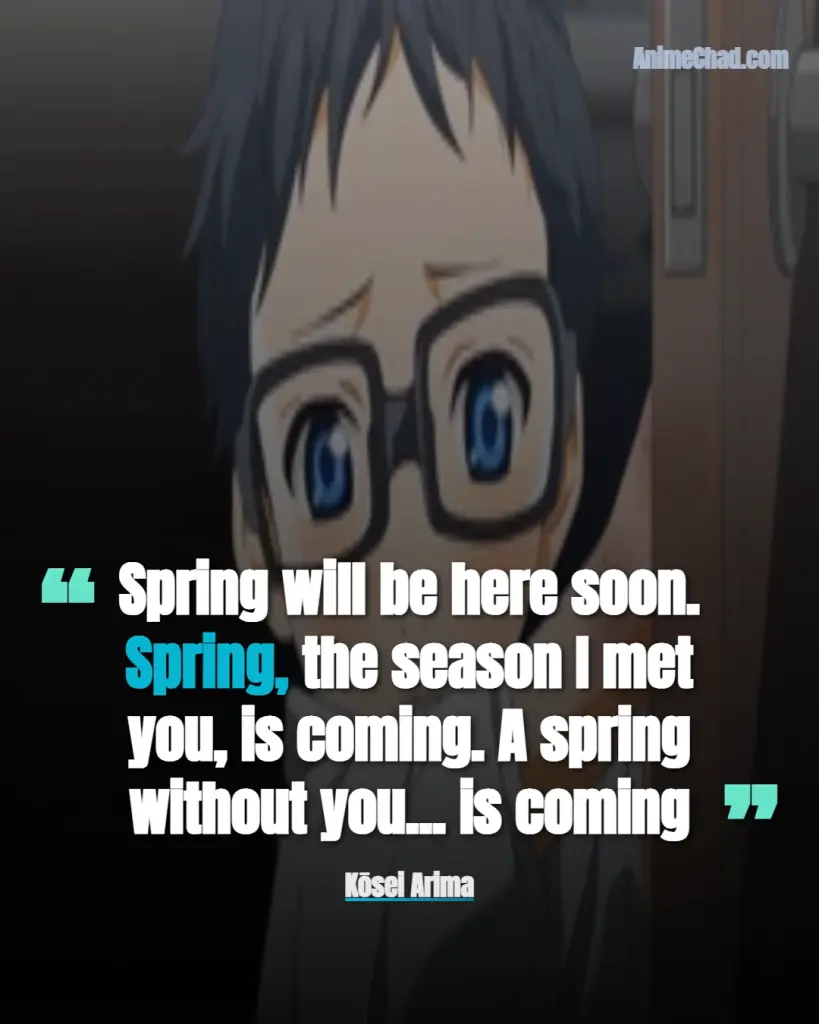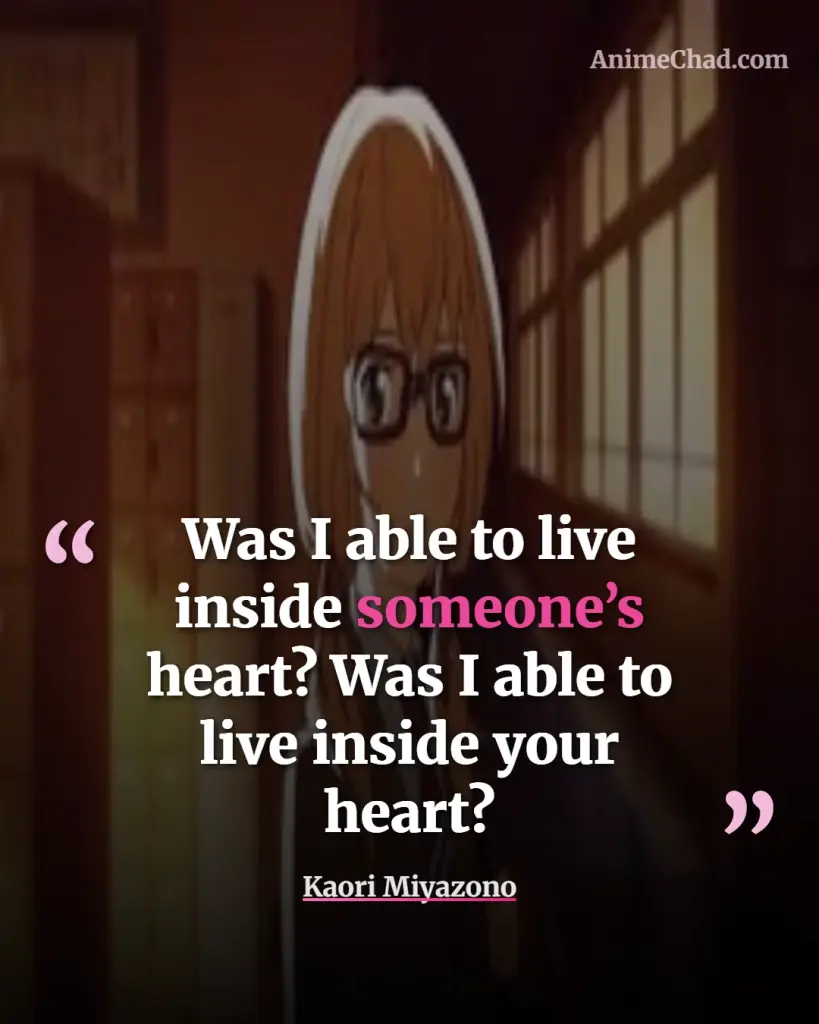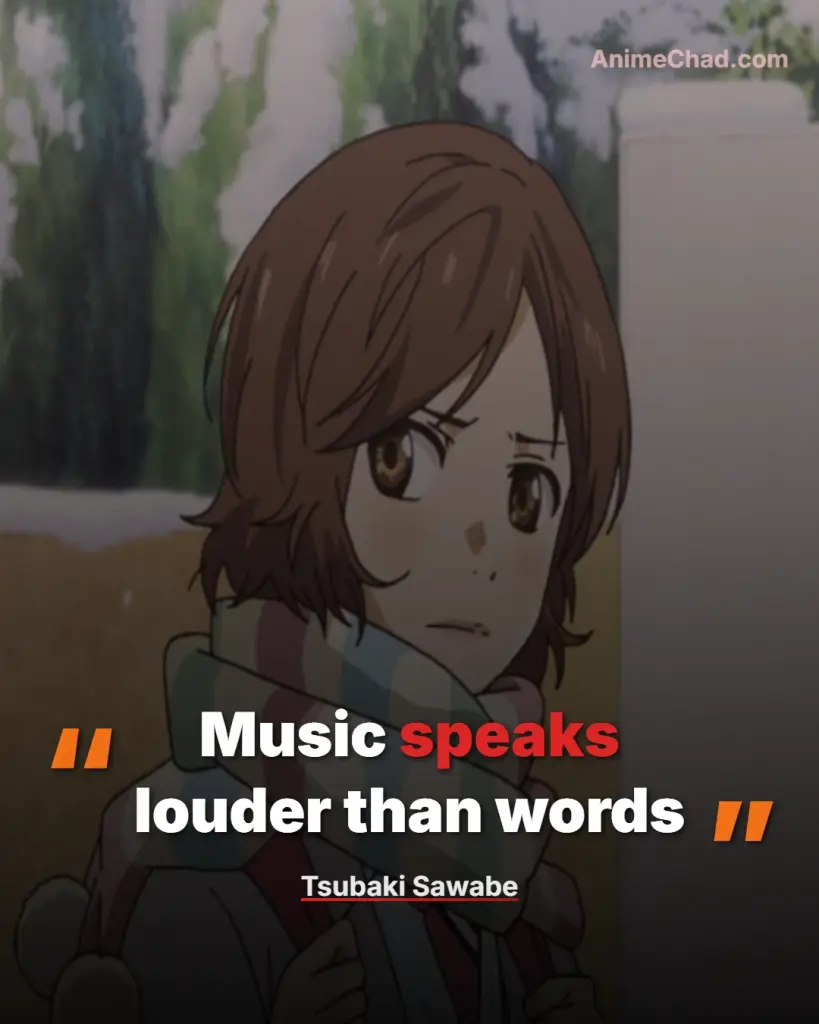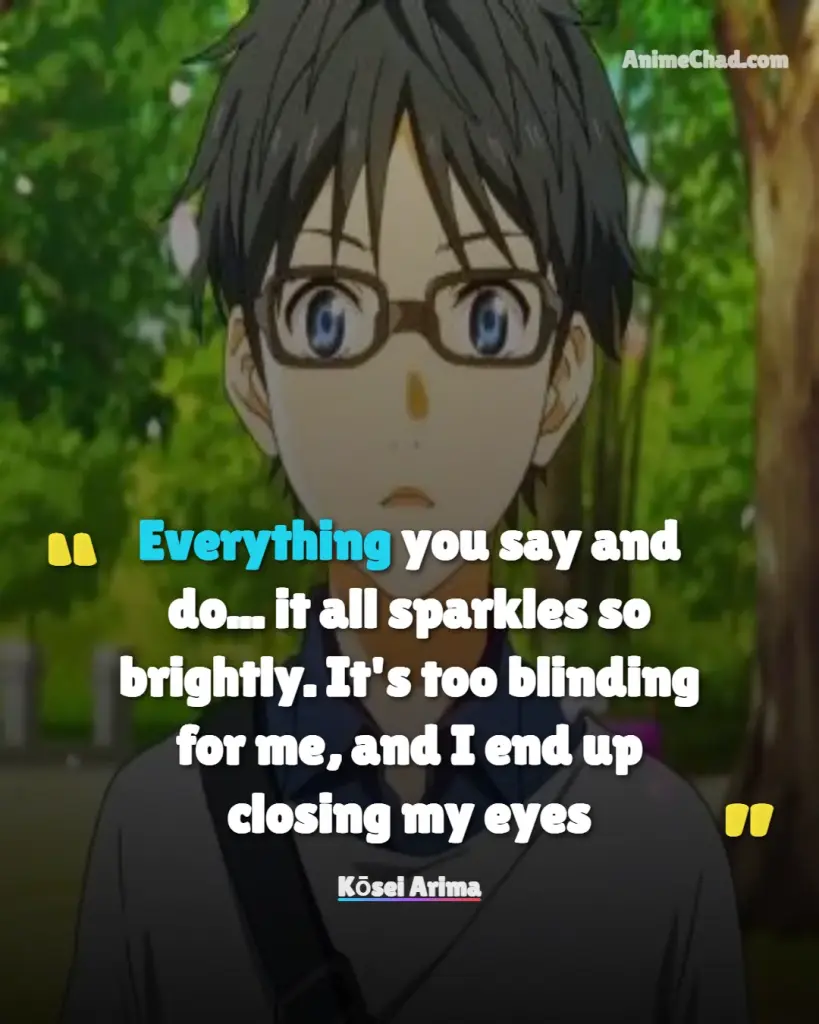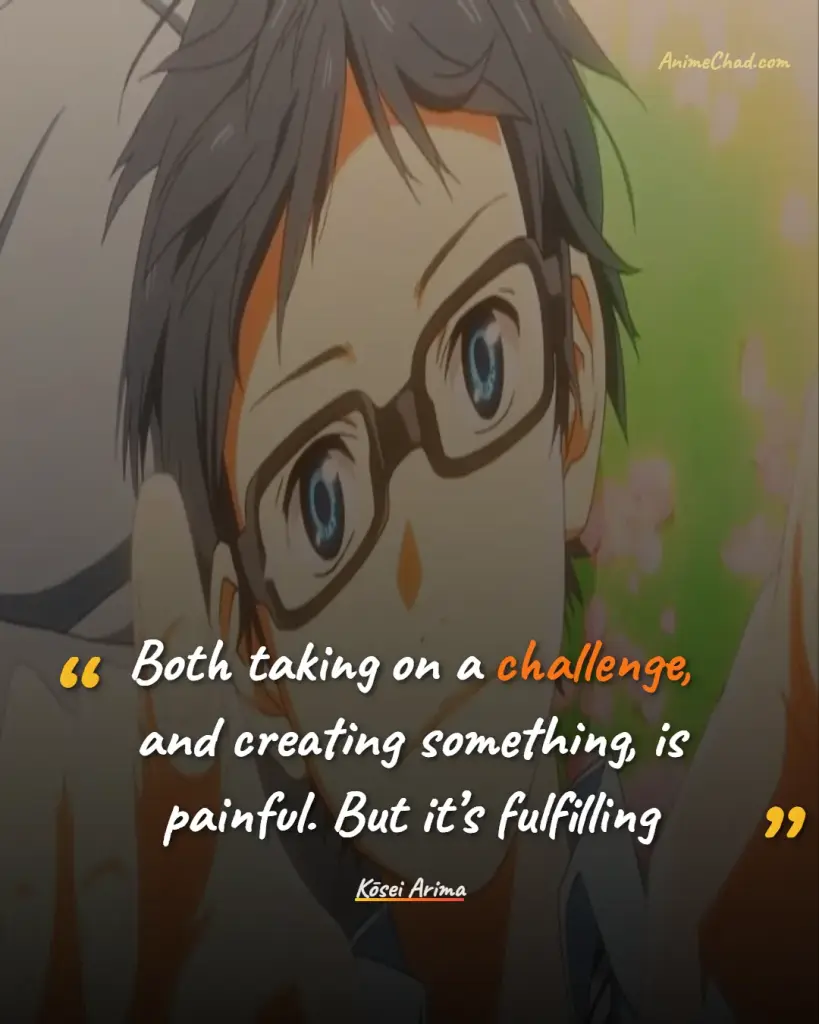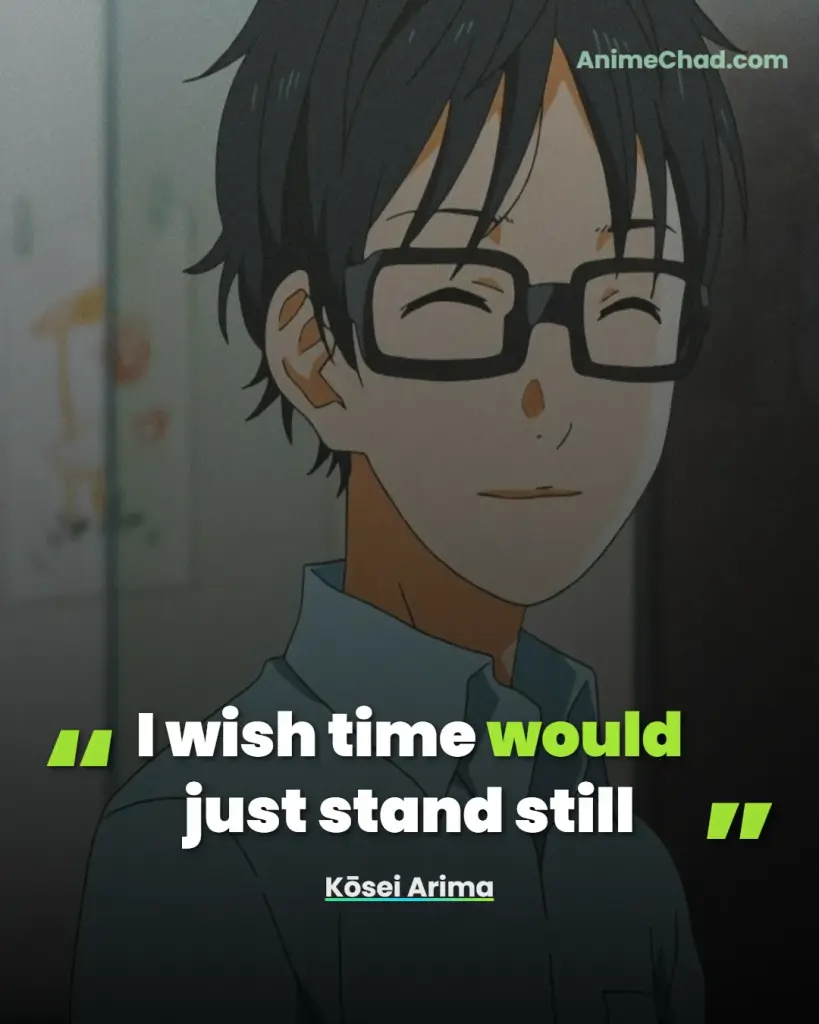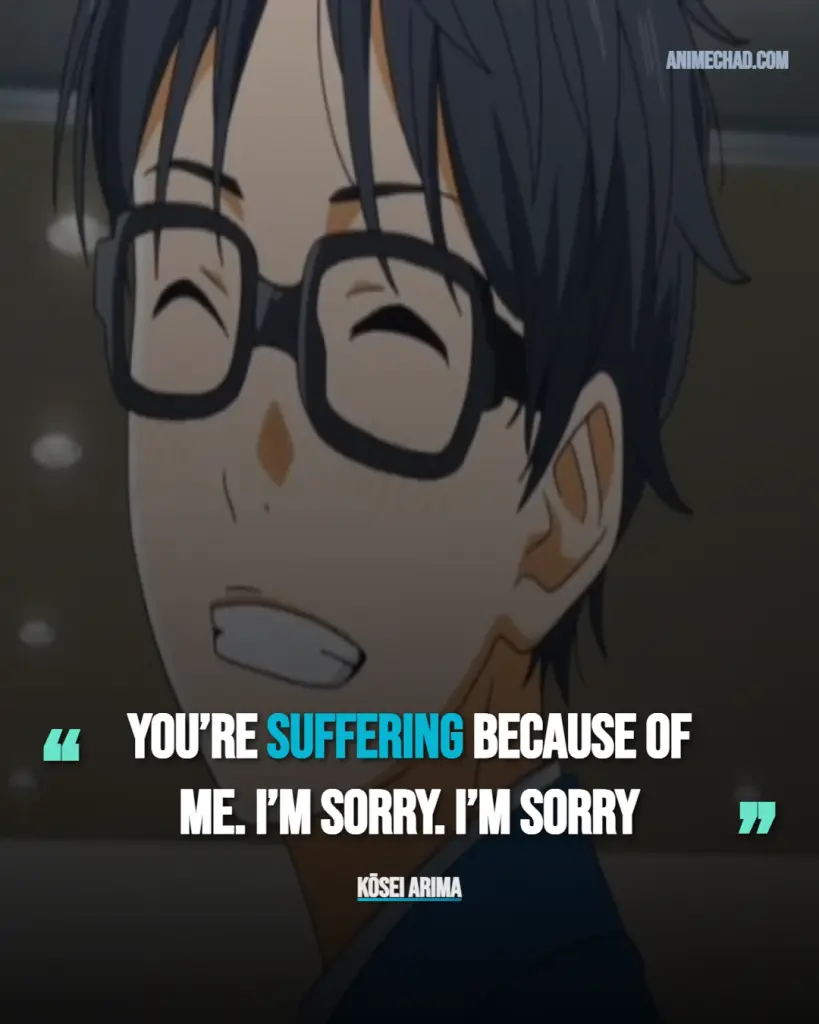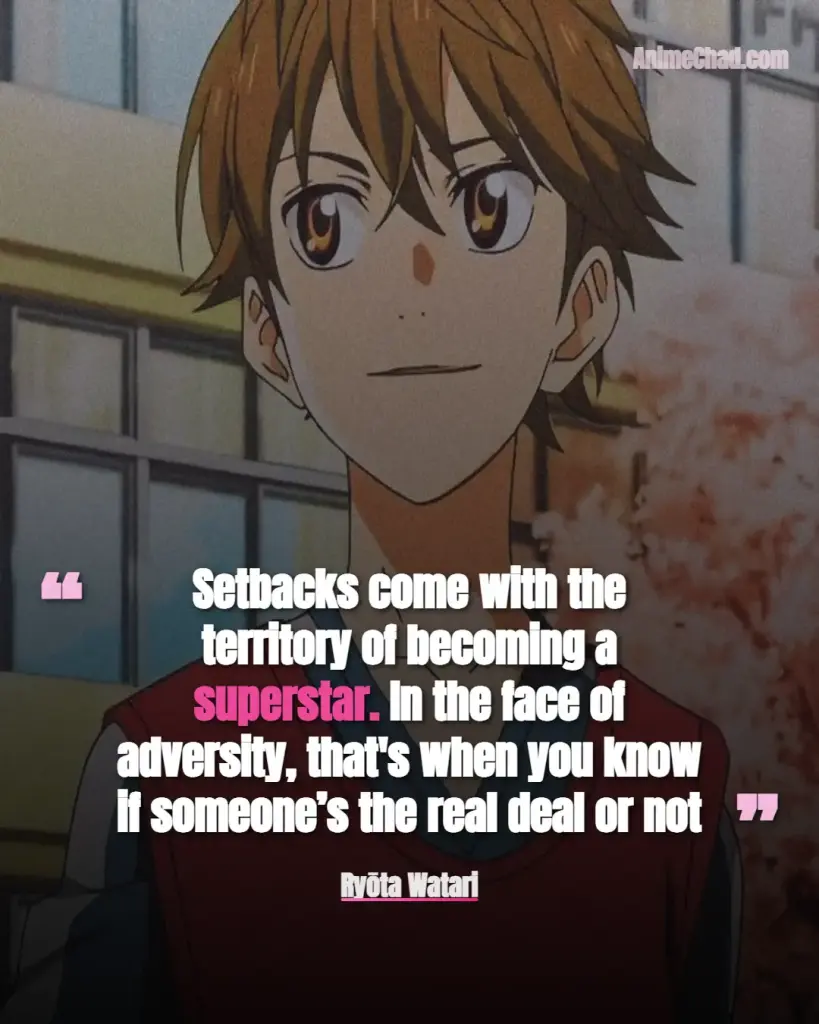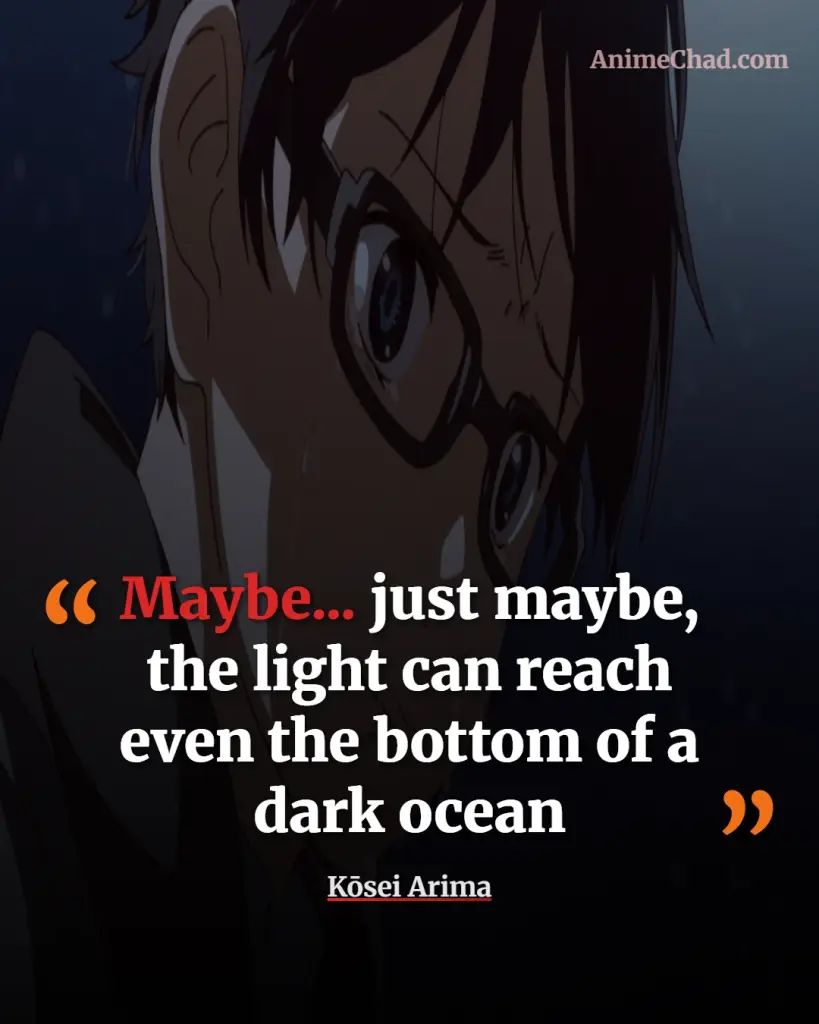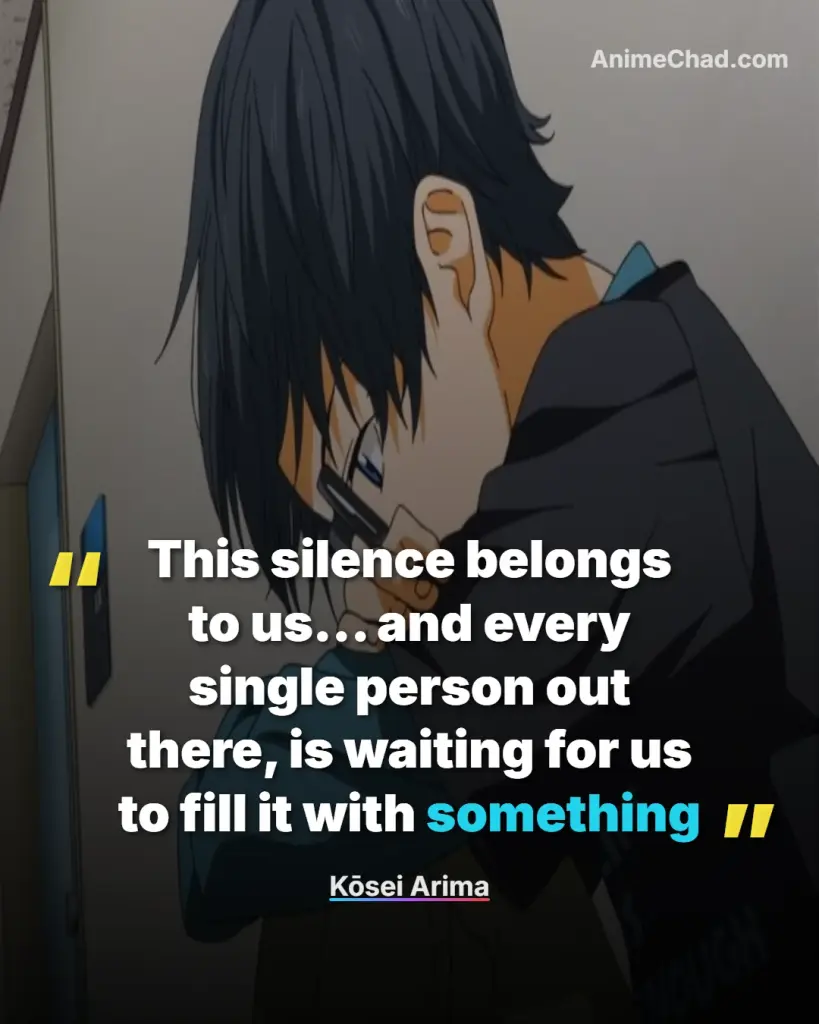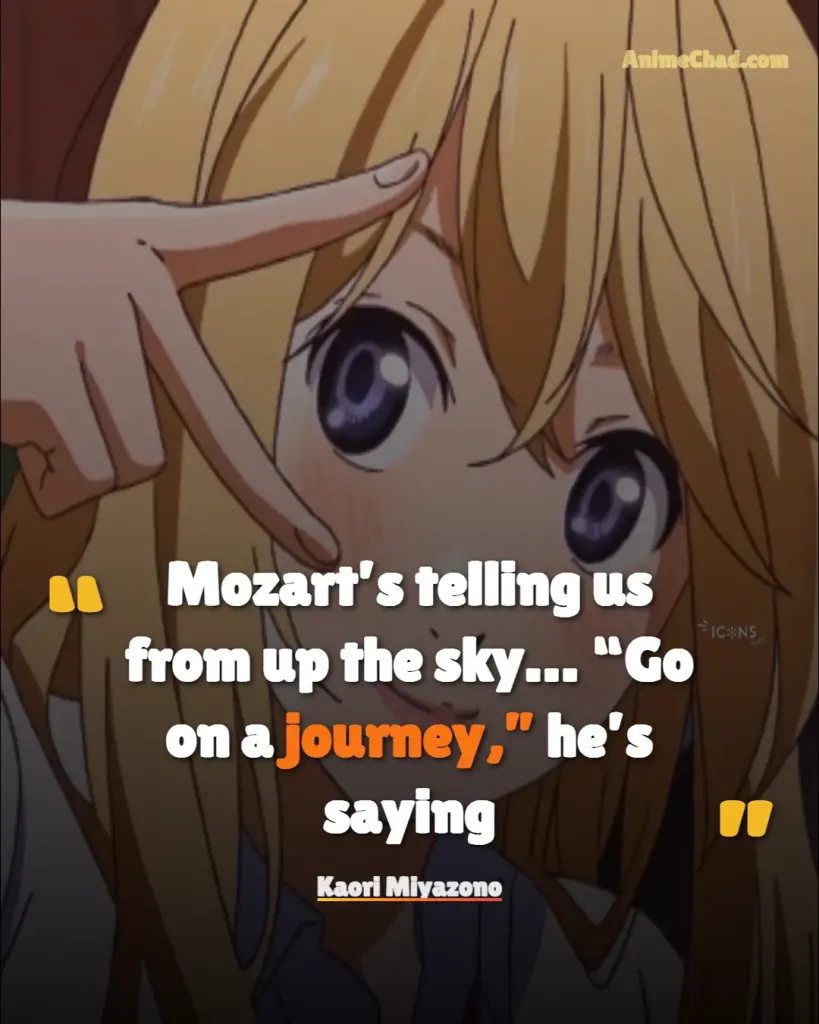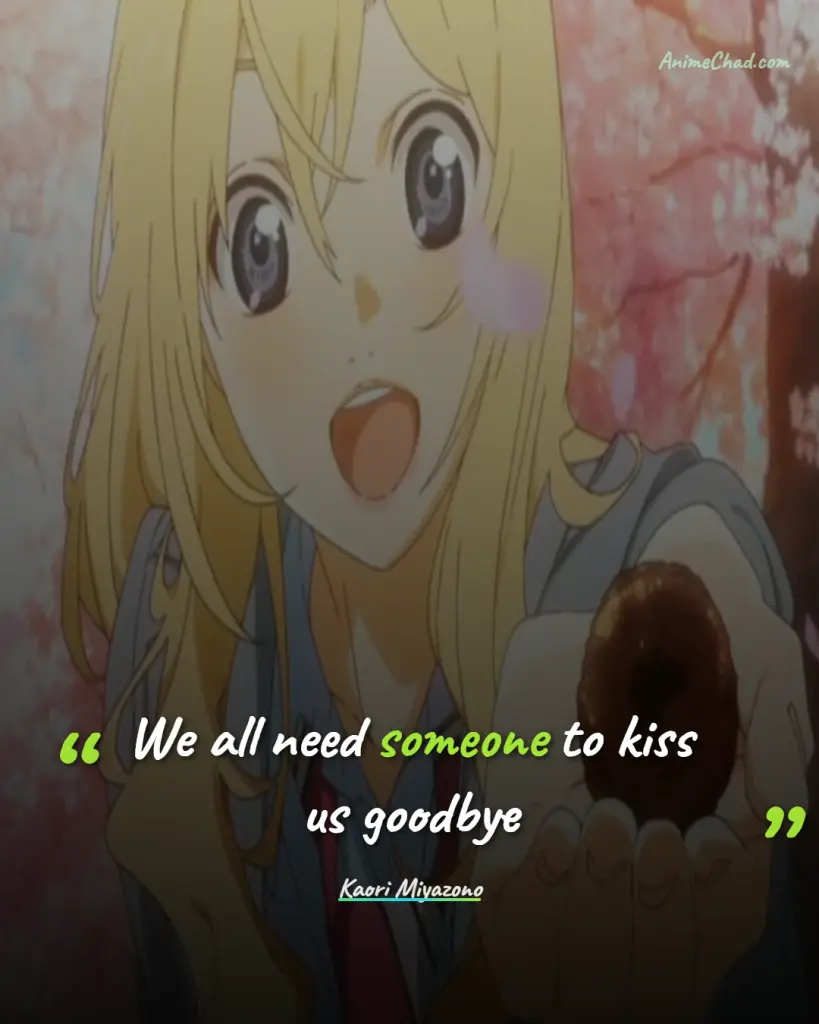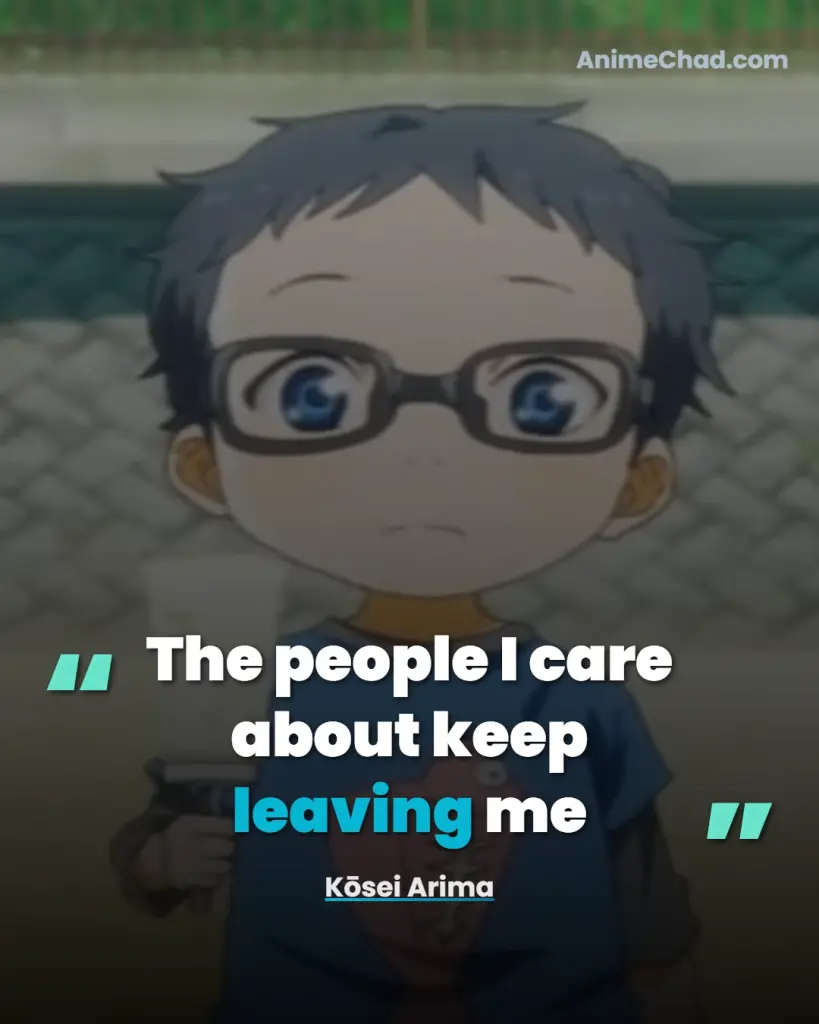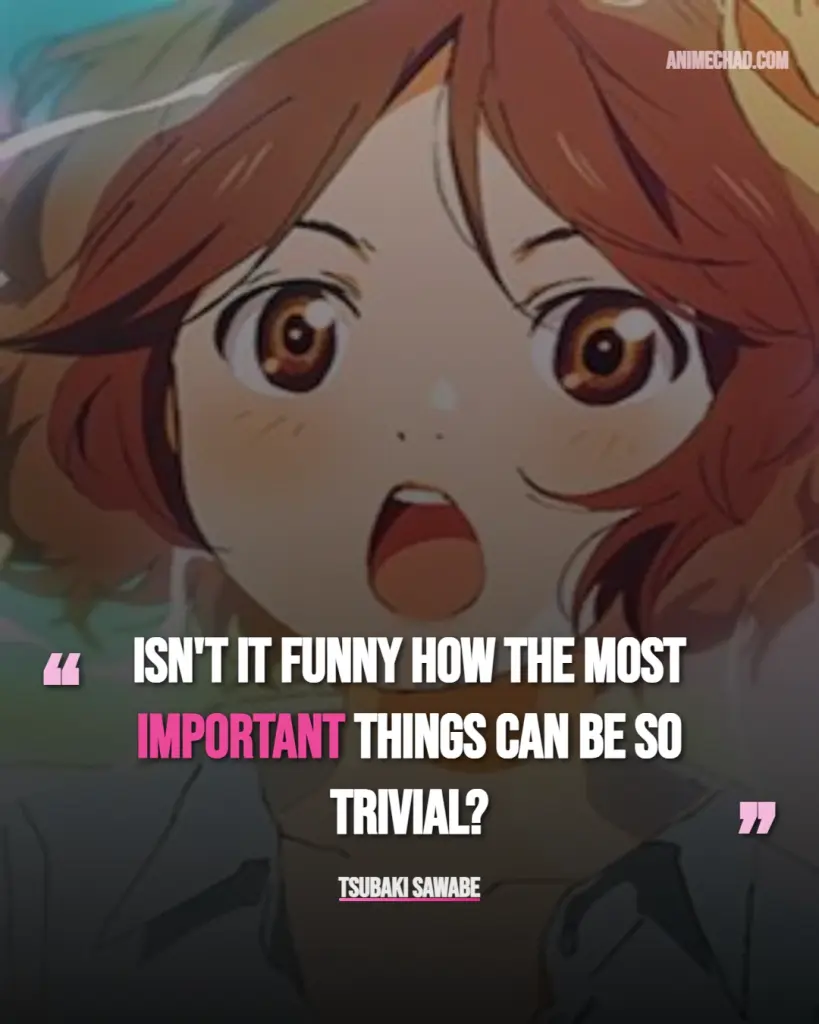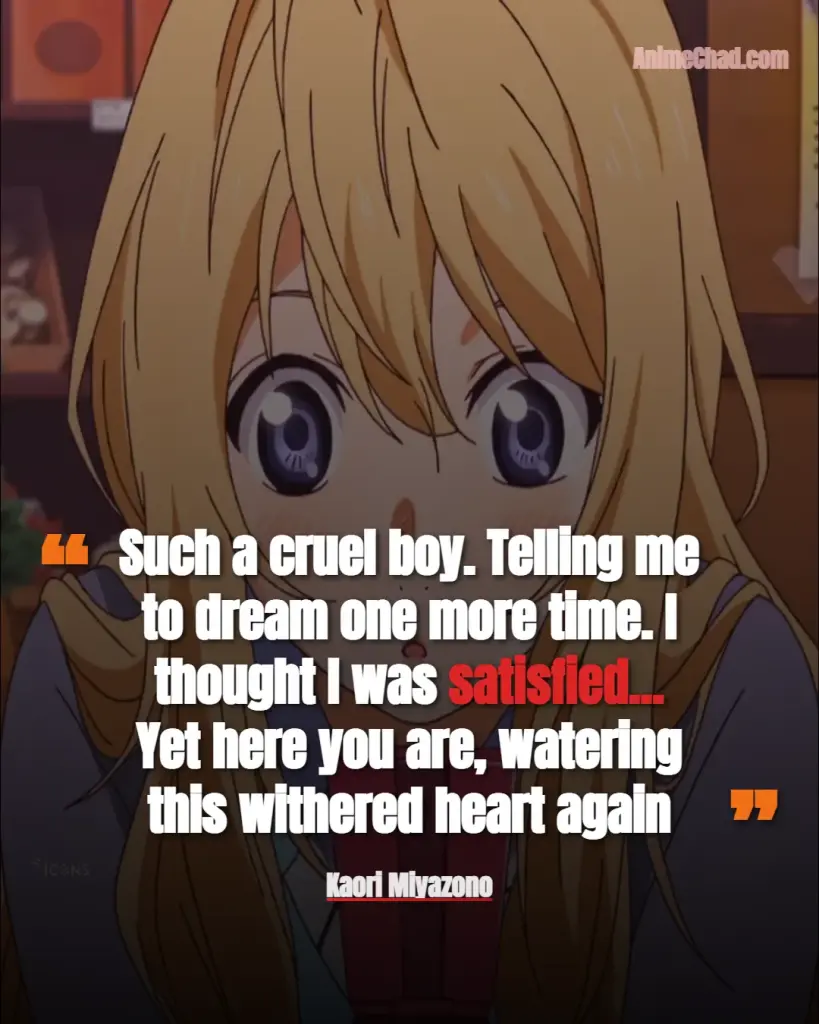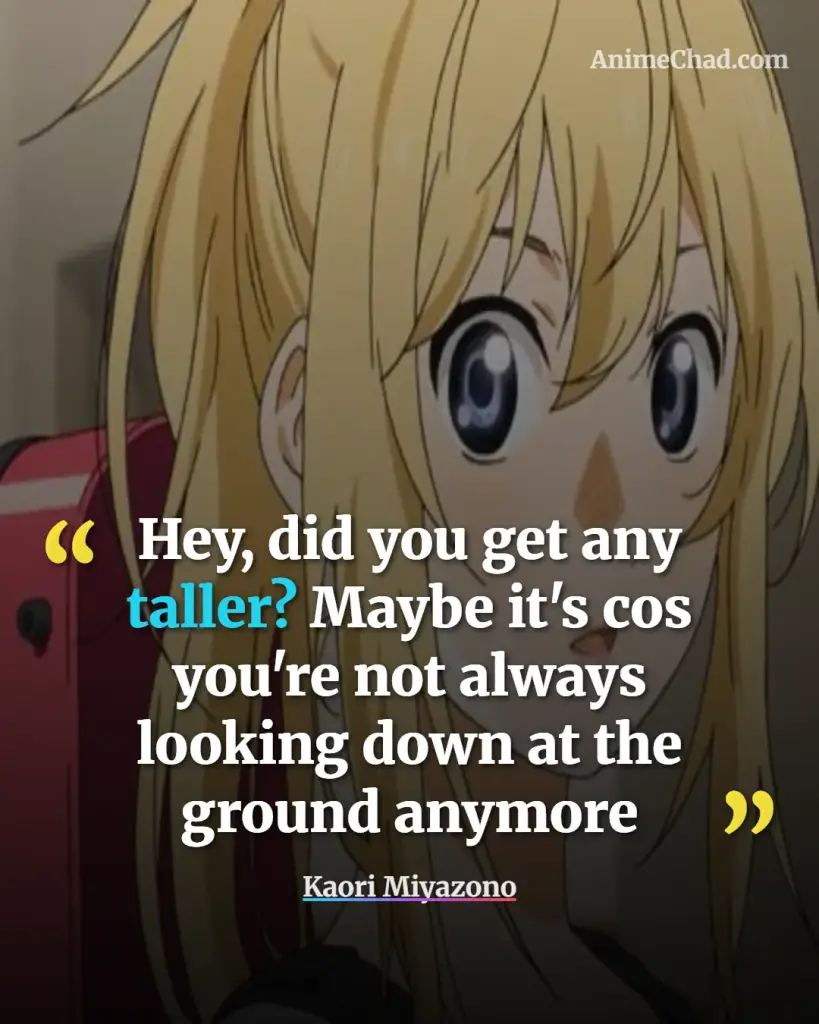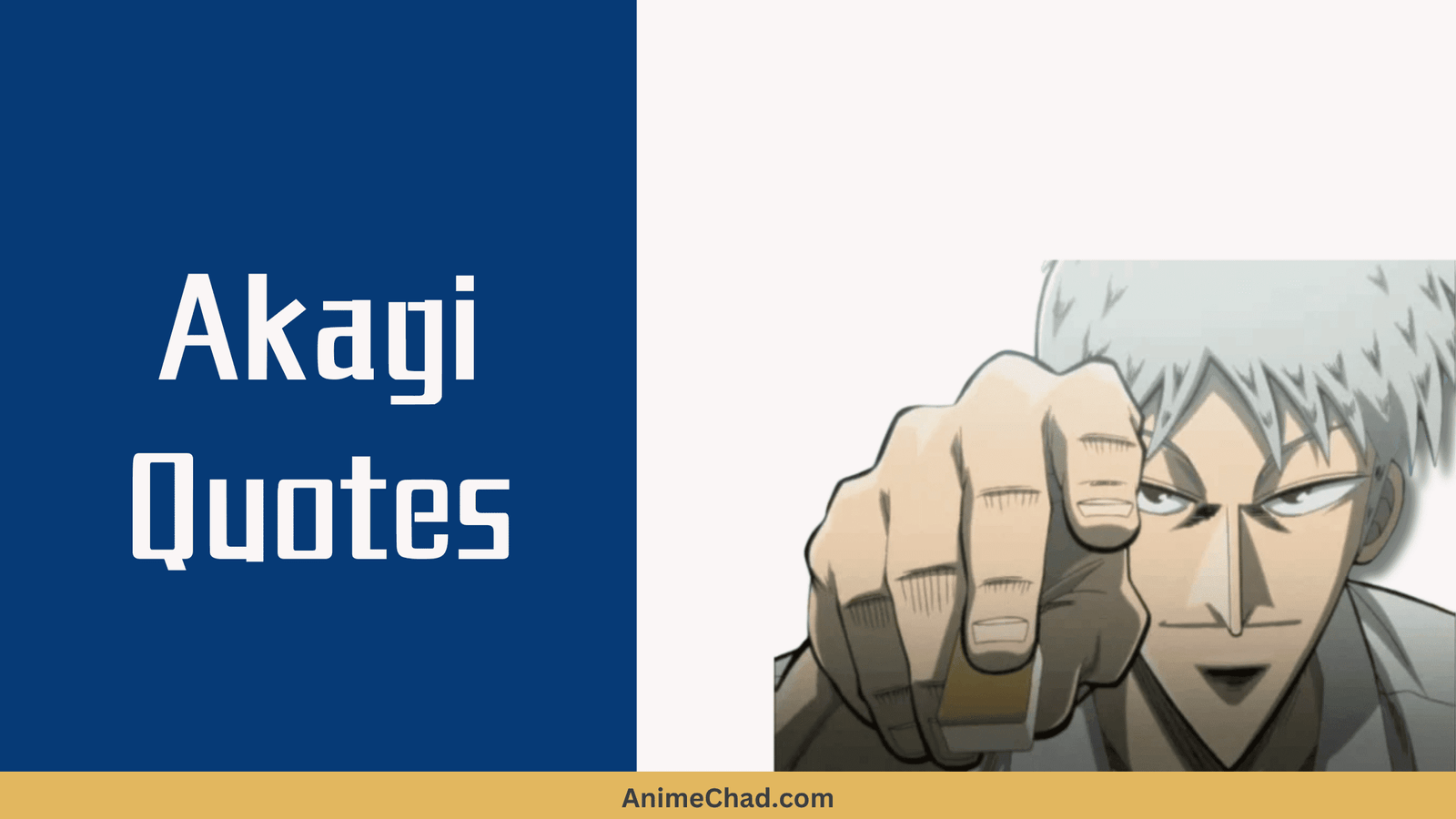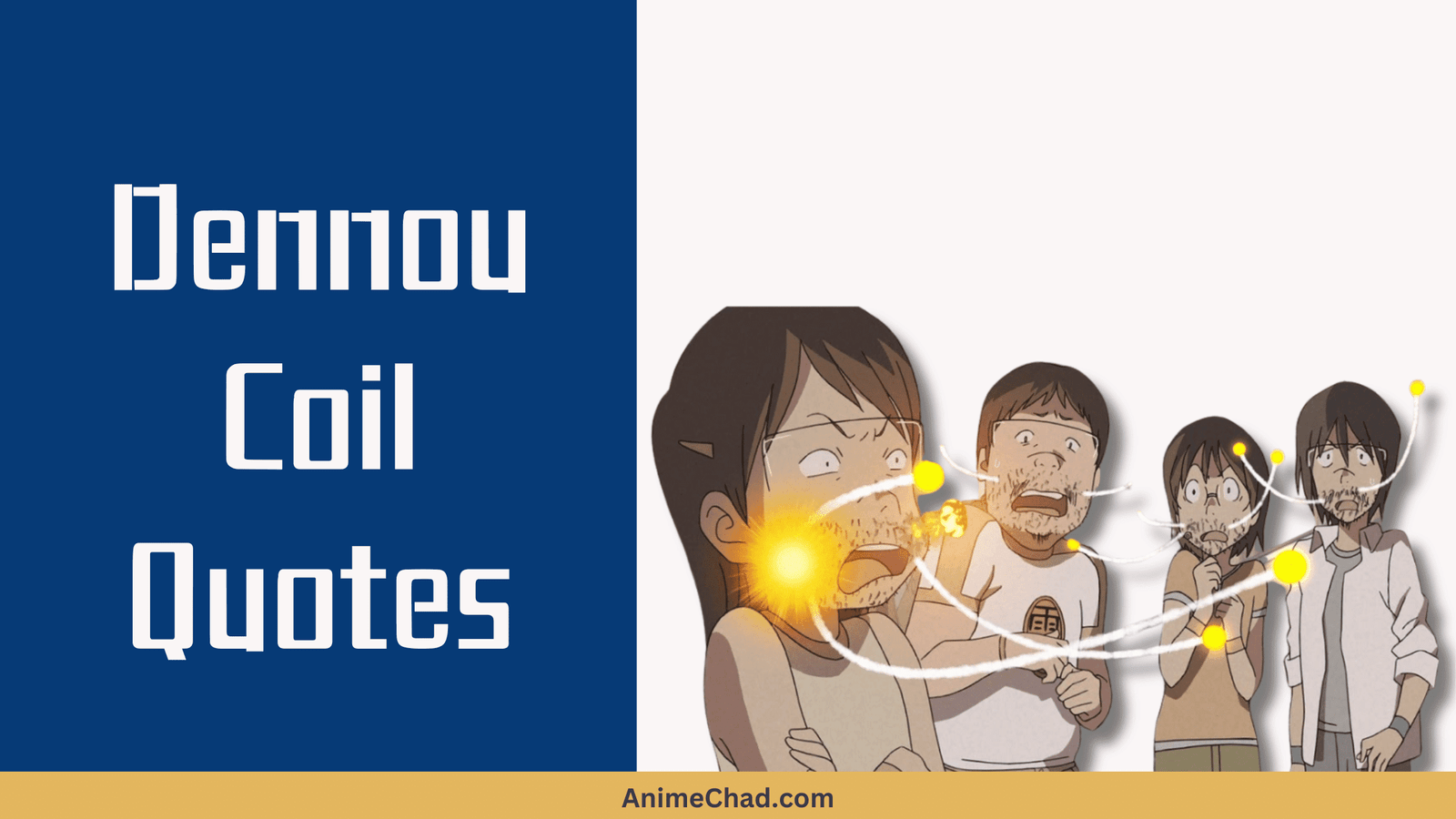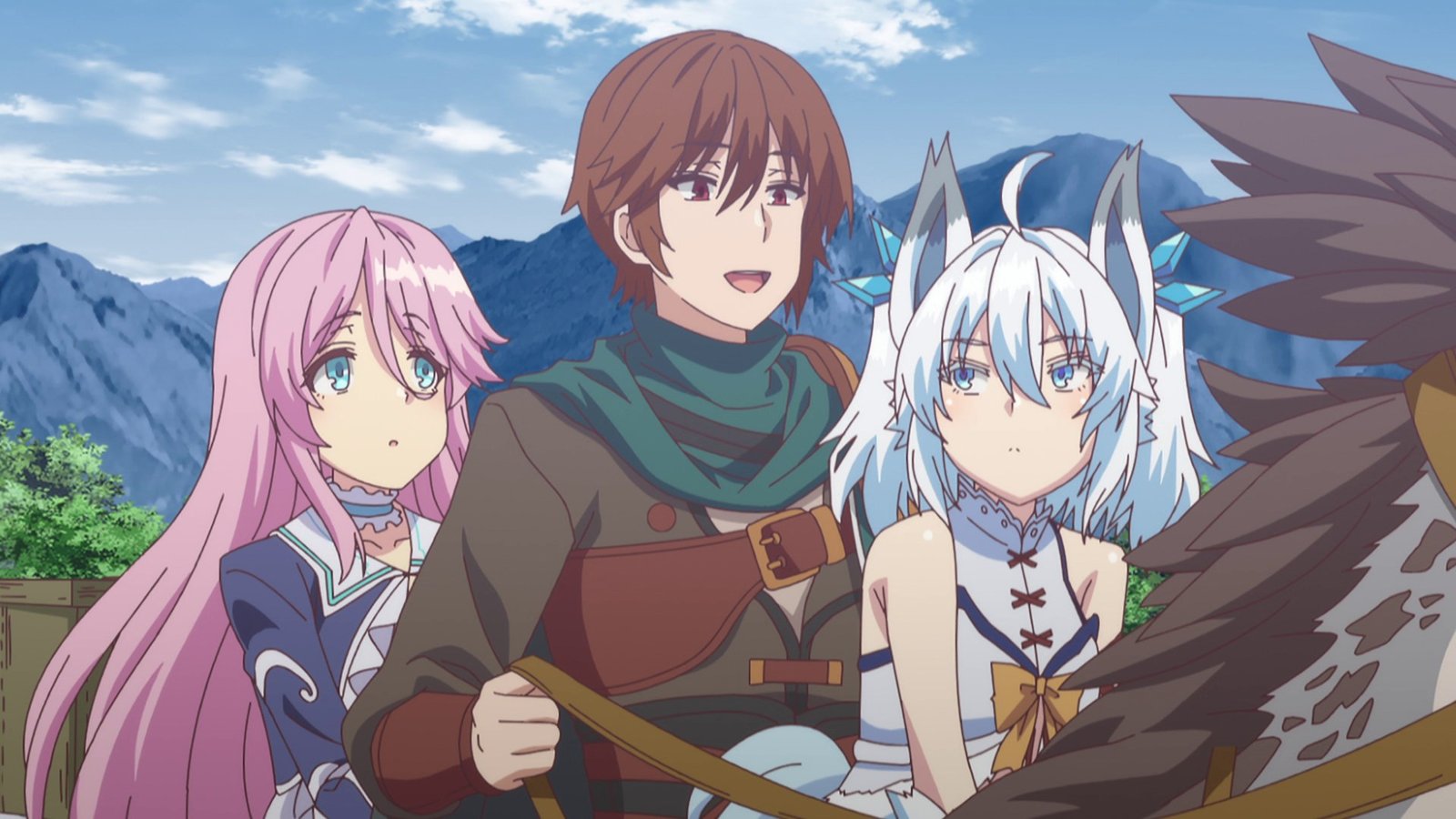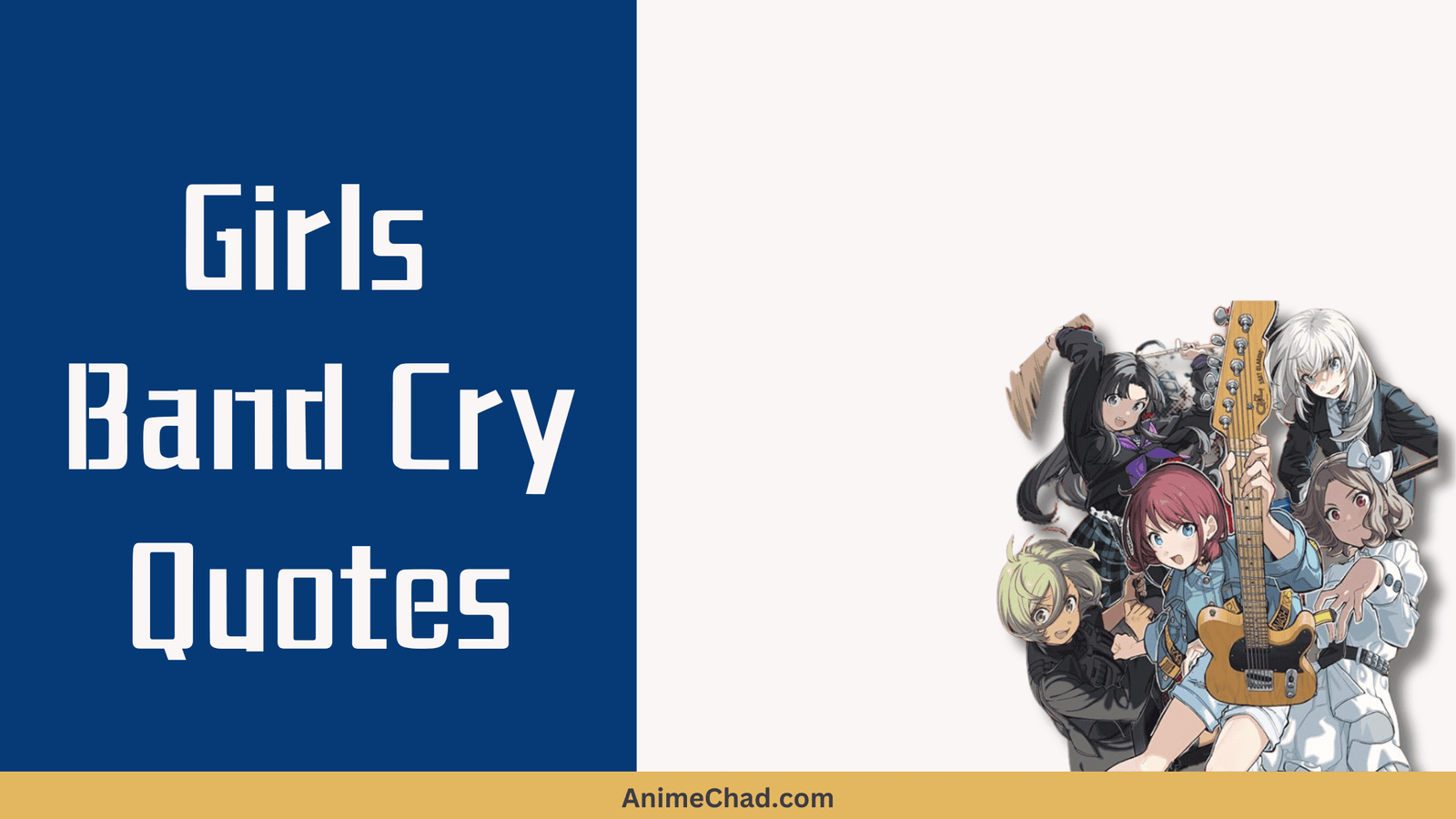Your Lie in April follows Kōsei Arima, a former piano prodigy haunted by trauma and loss, who rediscovers music and life through his vibrant encounters with violinist Kaori Miyazono and childhood friends. The series delves into profound themes of grief, love, perseverance, and the healing power of art, blending emotional highs with devastating lows.
This curated collection of 25 canonical quotes highlights key character developments, emotional impacts, and ties to these themes across various arcs, from early rivalries to heartfelt farewells.
Maybe there’s only a dark road up ahead. But you still have to believe and keep going. Believe that the stars will light your path, even a little bit. Come on… Let’s go on a journey!
Episode 1 (Monotone/Colorful)
Kaori Miyazono
Kaori’s bold invitation sparks Kōsei’s reawakening, symbolizing hope amid despair and introducing themes of faith and renewal in his isolated world.
I have no idea what lies ahead, but I’ve taken the first steps
Episode 2 (Dreams and Reality)
Kōsei Arima
Kōsei’s tentative resolve after his mother’s shadow marks early growth from paralysis to tentative action, echoing perseverance against inherited trauma.
Every since that day I met you, the world became colorful
Episode 2 (Dreams and Reality)
Kōsei Arima
This reflects Kaori’s transformative influence, shifting Kōsei’s grayscale existence to vibrancy and highlighting love’s role in emotional revival.
It’s like… I have nothing to offer but my piano playing…
Episode 5 (In the Rain)
Kōsei Arima
Kōsei’s vulnerability exposes his self-doubt, deepened by Kaori’s empathy, fostering his arc from inadequacy to self-acceptance through music.
Is that a bad thing? Do you think you’ll be able to forget?
Episode 5 (In the Rain)
Kaori Miyazono
Kaori challenges Kōsei’s evasion, emphasizing music’s irreplaceable essence and urging him toward confronting grief in a pivotal friendship moment.
Whether you’re sad, you’re a mess, or you’ve hit rock bottom, you still have TO PLAY! That’s how people like us survive
Episode 6 (At the Bottom of the Night Sea)
Kaori Miyazono
In a competitive arc, Kaori motivates amid rivalry, underscoring resilience and art’s survival power, boosting Kōsei’s confidence against rivals.
The stars shine at night, you know
Episode 10 (Love’s Lie)
Ryōta Watari
Watari’s encouragement during Kōsei’s crisis highlights adversity’s test, tying to themes of authenticity and supporting Kōsei’s push beyond doubt.
By exchanging notes, you get to know one another, to understand one another. As if your souls were connected and your hearts were overlapping
Episode 11 (Kōsei and Kaori)
Kōsei Arima
During a duet, this captures music’s connective magic, advancing Kōsei’s emotional openness and the series’ exploration of unspoken bonds.
We’re so good at struggling! We risk our lives to struggle, because we’re musicians, remember?
Episode 12 (Twinkle Little Star)
Kaori Miyazono
Kaori rallies in a peaceful reflection, emphasizing shared artistic passion, which deepens her development as Kōsei’s inspirational force.
Spring will be here soon. Spring, the season I met you, is coming. A spring without you… is coming
Episode 22 (April’s Lie)
Kōsei Arima
Kōsei’s final narration conveys profound loss, marking his growth from denial to acceptance, central to themes of mortality and enduring love.
Was I able to live inside someone’s heart? Was I able to live inside your heart?
Episode 22 (April’s Lie)
Kaori Miyazono
In her letter, Kaori questions her impact, revealing vulnerability and tying to legacy, evoking tears while affirming her role in Kōsei’s healing.
Music speaks louder than words
Episode 7 (Jack-O’-Lantern)
Tsubaki Sawabe
Tsubaki’s insight during a festival moment connects non-verbal expression to emotions, showing her evolving understanding of Kōsei’s musical world.
Everything you say and do… it all sparkles so brightly. It’s too blinding for me, and I end up closing my eyes
Episode 8 (The Shadow We Cast)
Kōsei Arima
Admiring Kaori, this highlights her radiance against his shadows, advancing his arc toward aspiring to her free spirit amid growing affection.
Both taking on a challenge, and creating something, is painful. But it’s fulfilling
Episode 9 (The Scenery I’m Seeing)
Kōsei Arima
In a performance arc, Kōsei embraces struggle’s value, reflecting development from avoidance to fulfillment through art’s redemptive pain.
I wish time would just stand still
Episode 3 (City of Light)
Kōsei Arima
Kōsei’s longing in a serene outing underscores fleeting joy, connecting to themes of transience and his budding appreciation for present moments.
You’re suffering because of me. I’m sorry. I’m sorry
Episode 13 (The Boy and the Sea)
Kōsei Arima
Apologizing to Tsubaki, this reveals guilt’s weight, fostering his growth in recognizing relational impacts during a introspective beach scene.
Setbacks come with the territory of becoming a superstar. In the face of adversity, that’s when you know if someone’s the real deal or not
Episode 10 (Love’s Lie)
Ryōta Watari
Watari’s advice during competition tests resolve, emphasizing authenticity and aiding Kōsei’s perseverance in high-stakes musical battles.
Maybe… just maybe, the light can reach even the bottom of a dark ocean
Episode 14 (The Girl I Loved)
Kōsei Arima
Symbolizing hope’s penetration, this marks Kōsei’s emerging optimism, linking to healing from maternal loss in a deepening romance arc.
This silence belongs to us… and every single person out there, is waiting for us to fill it with something
Episode 15 (After the Rain)
Kōsei Arima
In quiet reflection, Kōsei urges creation over void, highlighting shared human potential and his shift toward proactive emotional expression.
Mozart’s telling us from up the sky… “Go on a journey,” he’s saying
Episode 4 (The End of the Beginning and the Beginning of the End)
Kaori Miyazono
Kaori invokes classical inspiration during practice, blending whimsy with motivation, advancing themes of artistic journeys and her guiding influence.
We all need someone to kiss us goodbye
Episode 21 (For April)
Kaori Miyazono
Kaori’s poignant wish evokes farewell’s intimacy, underscoring vulnerability and love’s finality in the series’ climactic emotional farewell.
The people I care about keep leaving me
Episode 16 (Welcome Back)
Kōsei Arima
Confessing abandonment fears, this exposes trauma’s core, propelling character development toward confronting isolation in relational arcs.
Isn’t it funny how the most important things can be so trivial?
Episode 18 (Heart’s Memory)
Tsubaki Sawabe
Tsubaki reflects on life’s ironies during conflict, revealing her maturation from denial to embracing complex emotions tied to friendship.
Such a cruel boy. Telling me to dream one more time. I thought I was satisfied… Yet here you are, watering this withered heart again
Episode 20 (Evergreen)
Kaori Miyazono
Kaori acknowledges Kōsei’s reviving effect, blending pain with gratitude, central to her arc of hidden illness and themes of rekindled passion.
Hey, did you get any taller? Maybe it’s cos you’re not always looking down at the ground anymore
Episode 12 (Twinkle Little Star)
Kaori Miyazono
Kaori notices Kōsei’s uplift, symbolizing growth from despair, in a lighthearted yet impactful moment reinforcing encouragement’s transformative power.

